SECONDARY NEWS
From the Assistant Principal
Miss Kim Bailey
kbailey@arm.catholic.edu.au
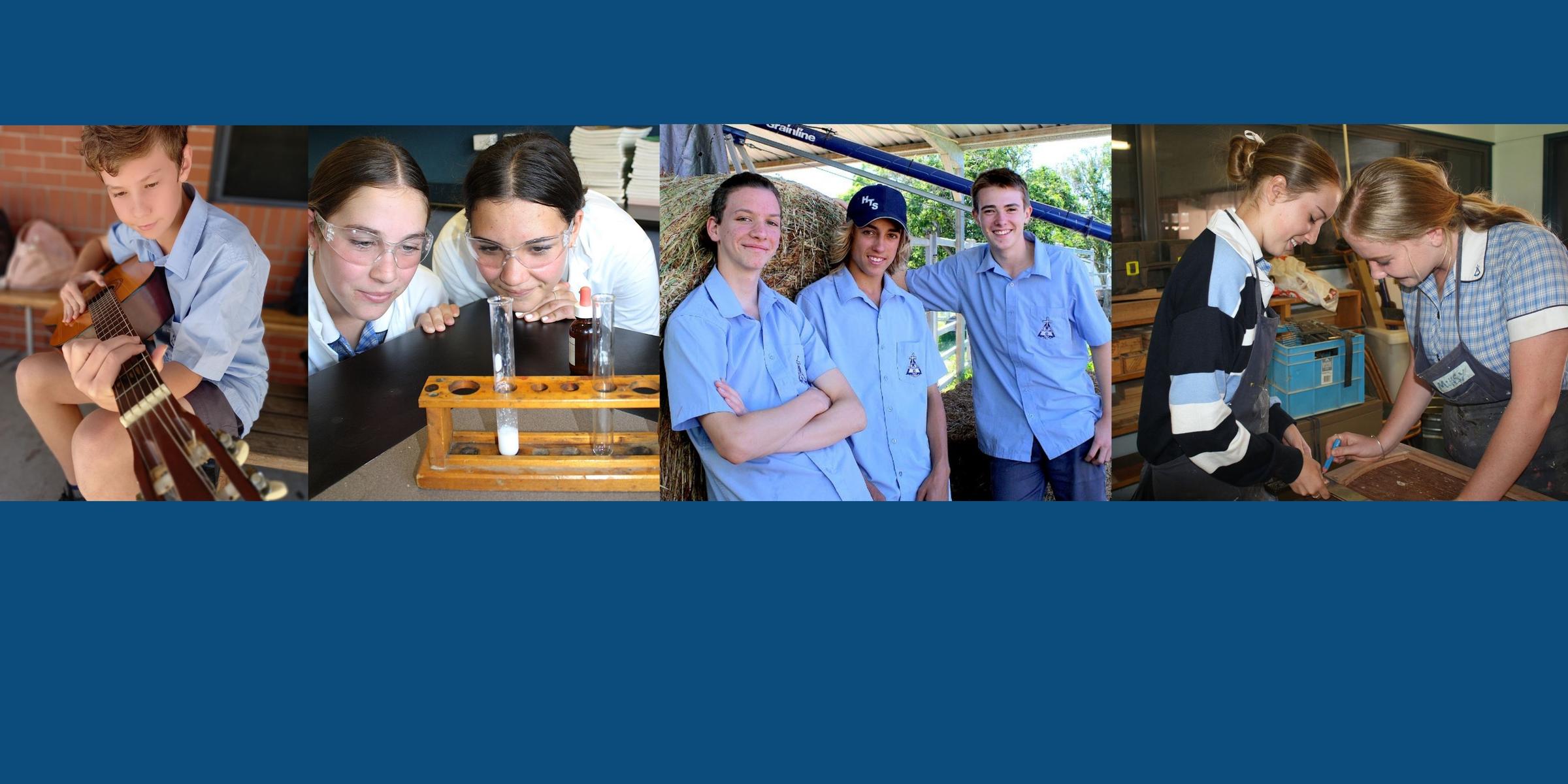
SECONDARY NEWS
From the Assistant Principal
Miss Kim Bailey
kbailey@arm.catholic.edu.au
In Week 6, on Thursday 16 November, the Secondary department will give up their sport time to take part in our annual Vinnies Fancy Dress Lap-a-thon.
Sponsorship forms for the lap-a-thon will be sent home with students this week. Participants will be asked to collect sponsorship money and make a donation to this cause. All funds raised will be donated to our local St Vincent de Paul centre for their busy Christmas period. There will be prizes for the best outfits presented for judging. Our Vinnies fundraising will continue with our coin-drop and Thanksgiving Mass in Week 10.
There will be a social on Thursday 16 November, to farewell Year 10. Miss Cush, Year 9 and the SRC are busily preparing for the event. More details next week in the newsletter.
Students in Years 8 & 9 made their Stage 5 Elective choices last Friday. This is the first step in this process, and students will be advised of their subjects before the end of the term.
Please contact Miss Bailey if you have any questions.
Last Tuesday, a number of students in Years 9 & 10 and Mr Gaias attended the Far Out Science Day at UNE. The students had a great day and were excellent ambassadors of Holy Trinity. Thanks to Mr Gaias for organising the day and to UNE for covering all costs.
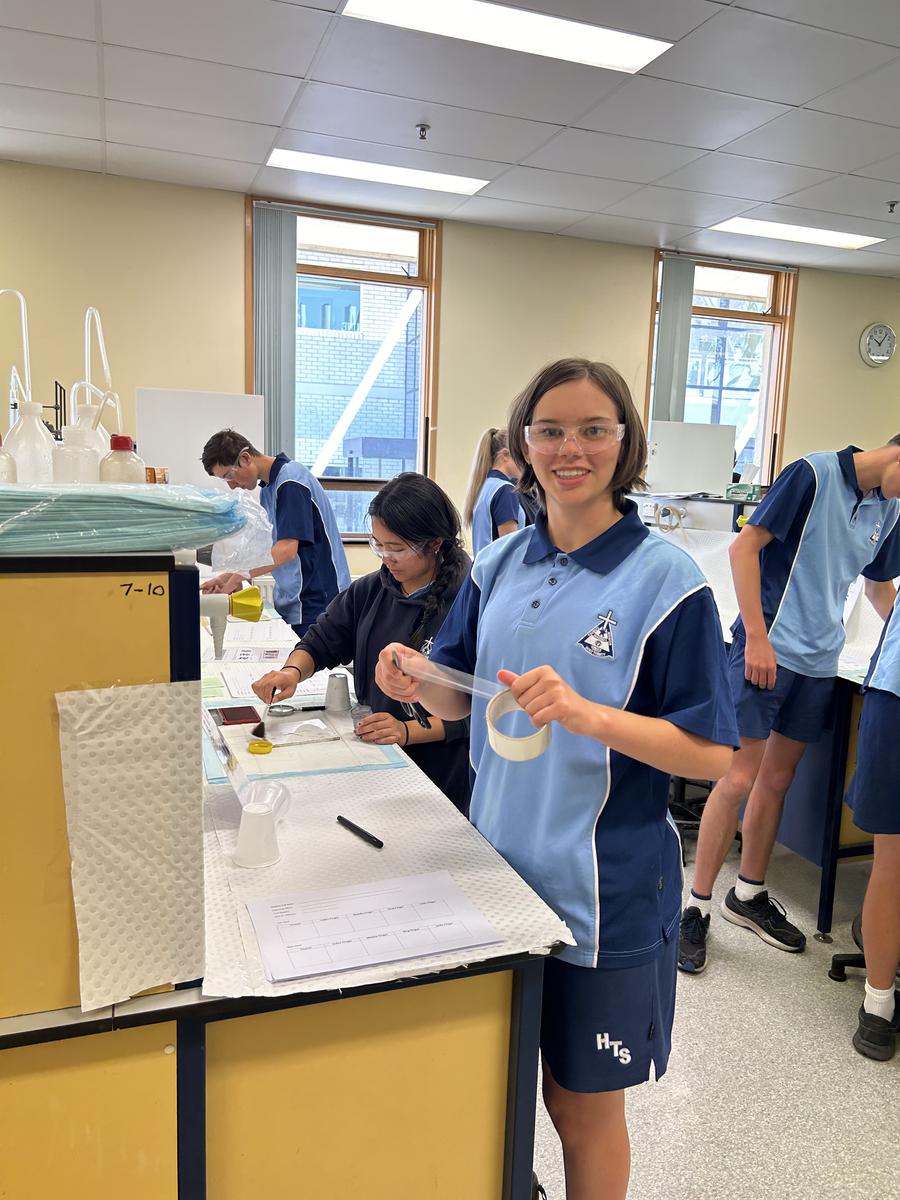
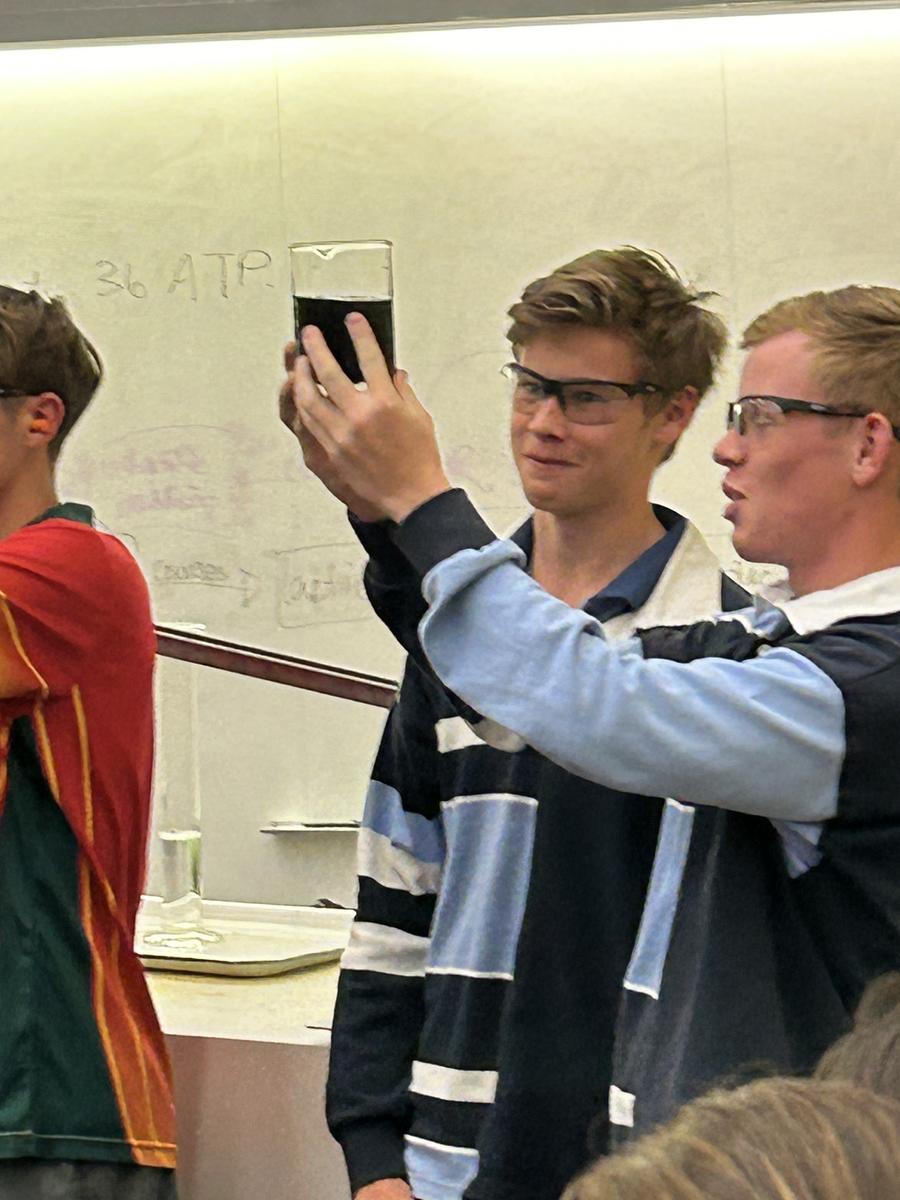
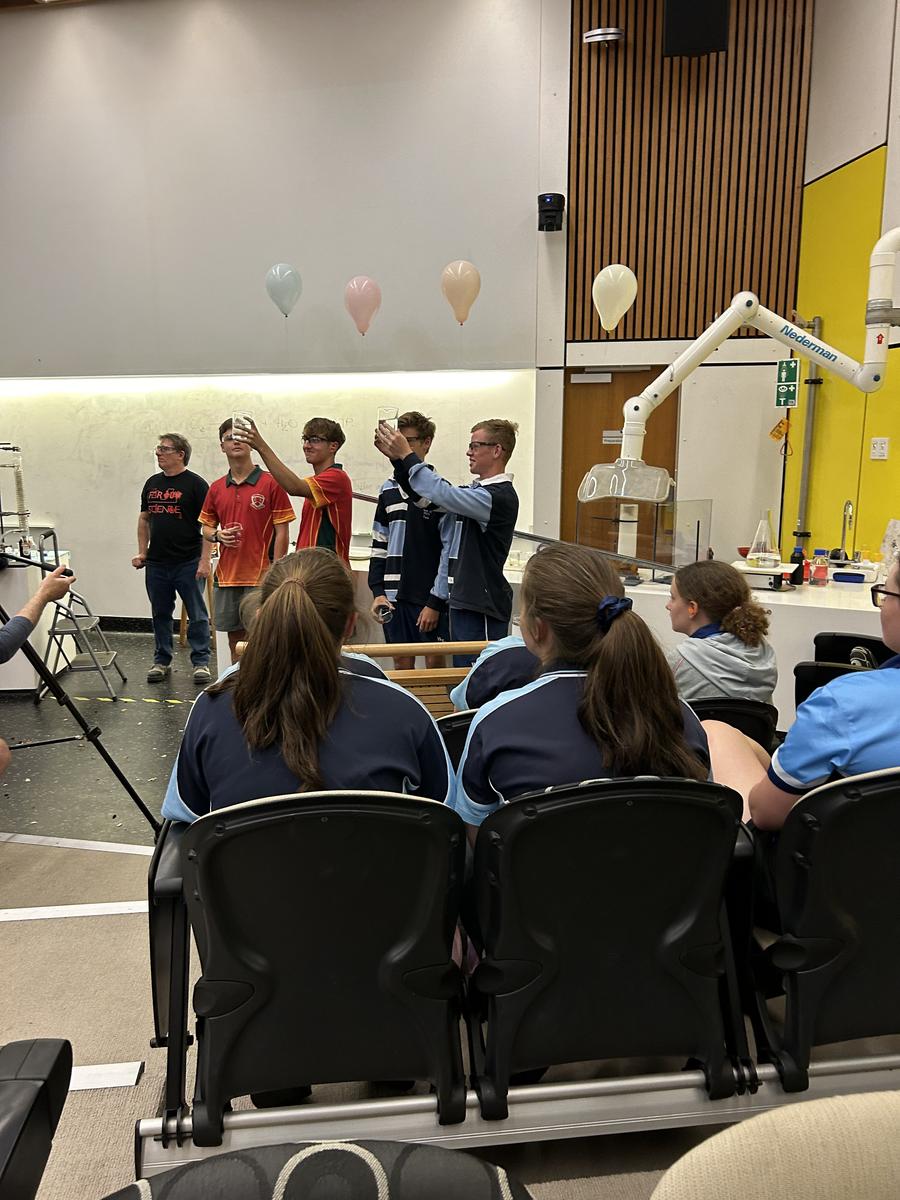
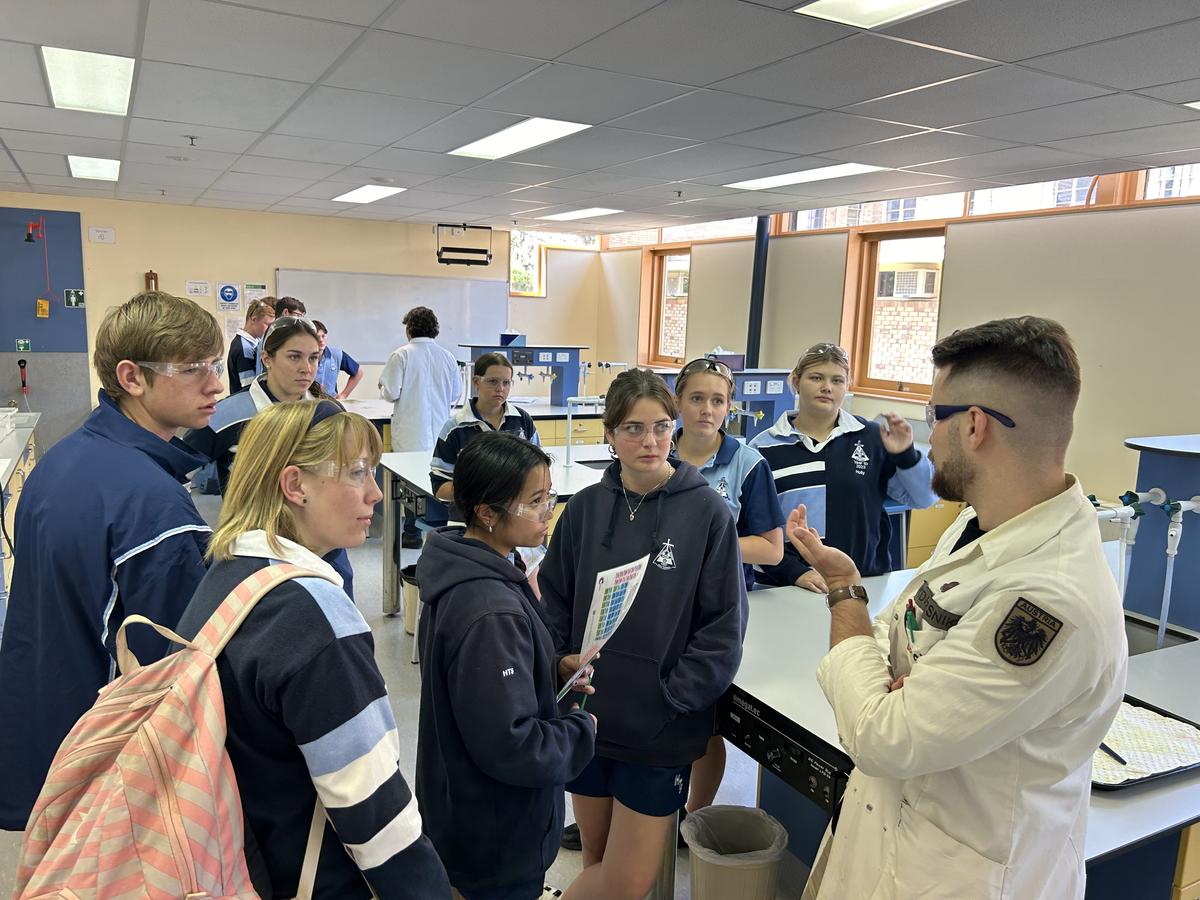
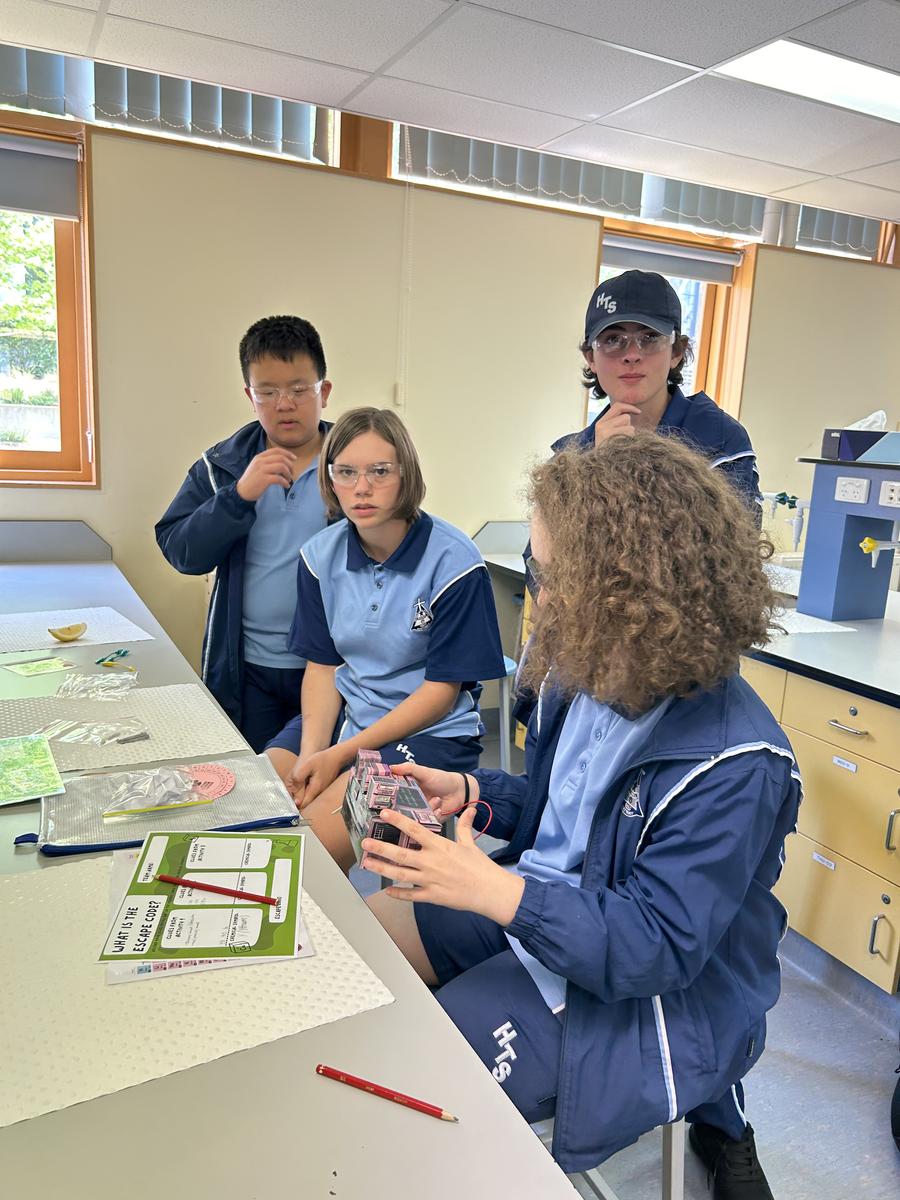
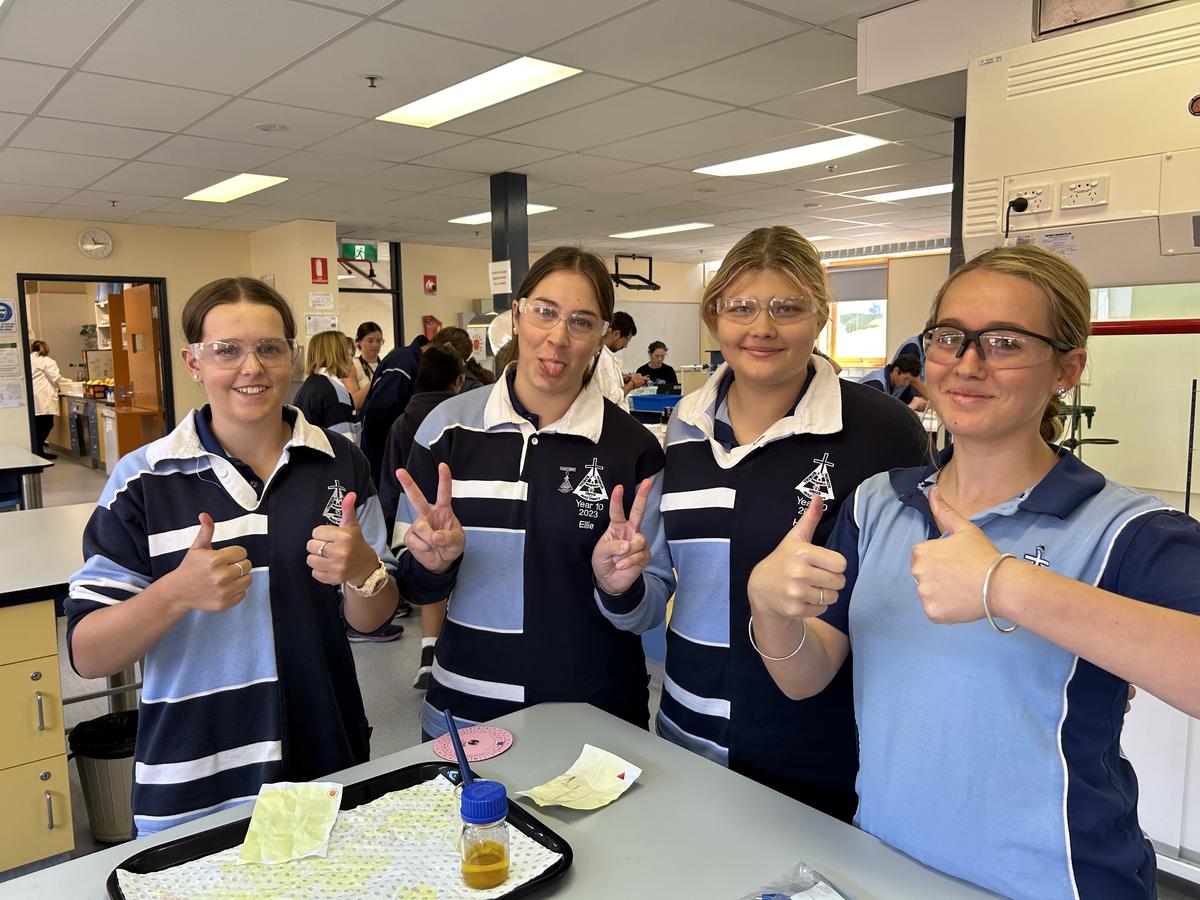
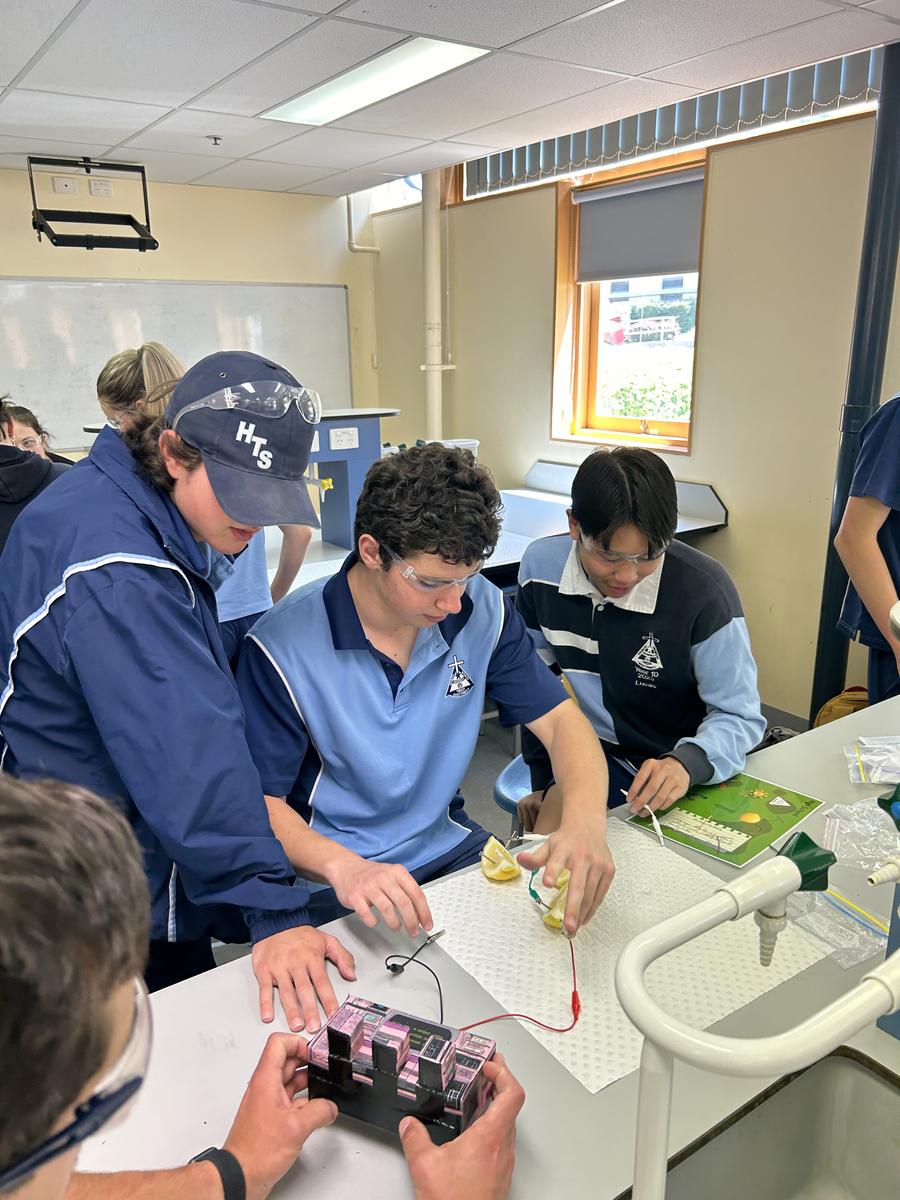
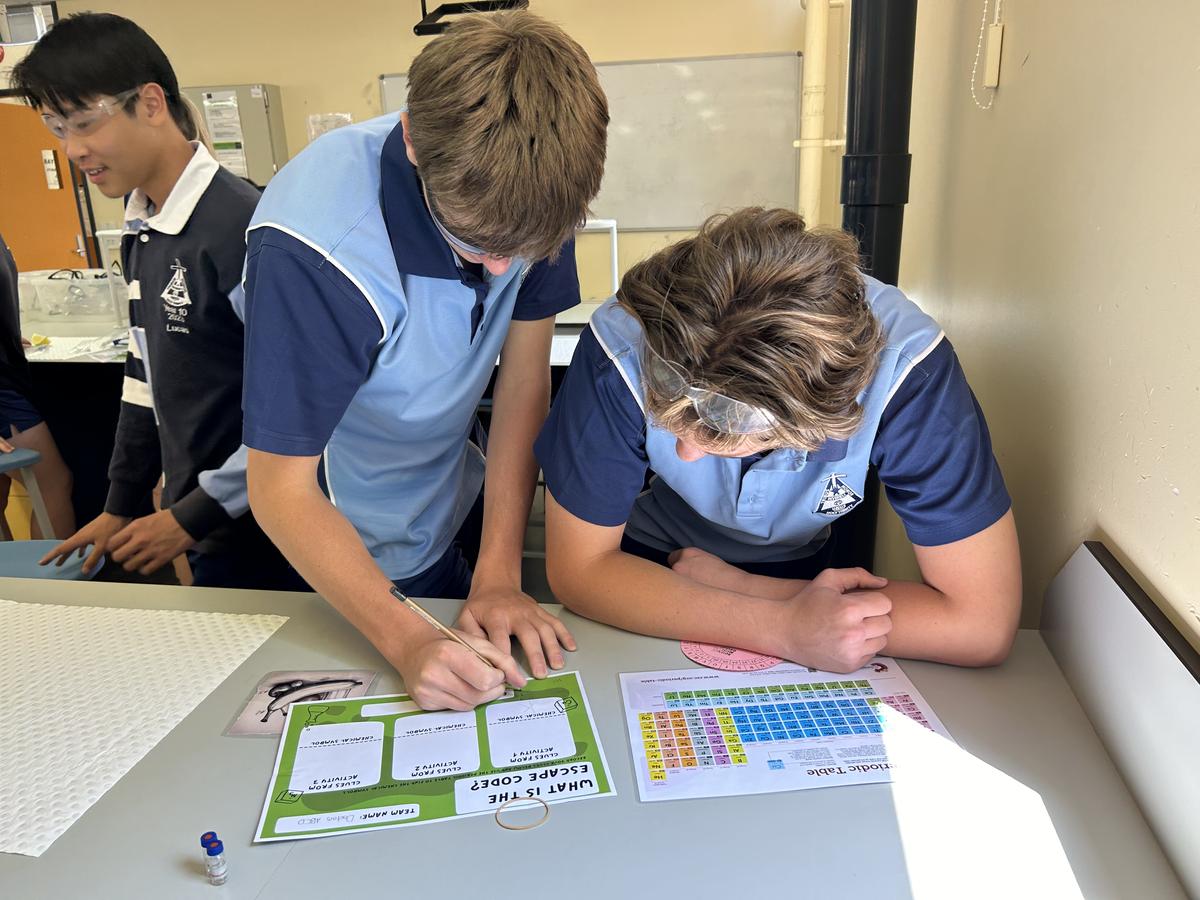
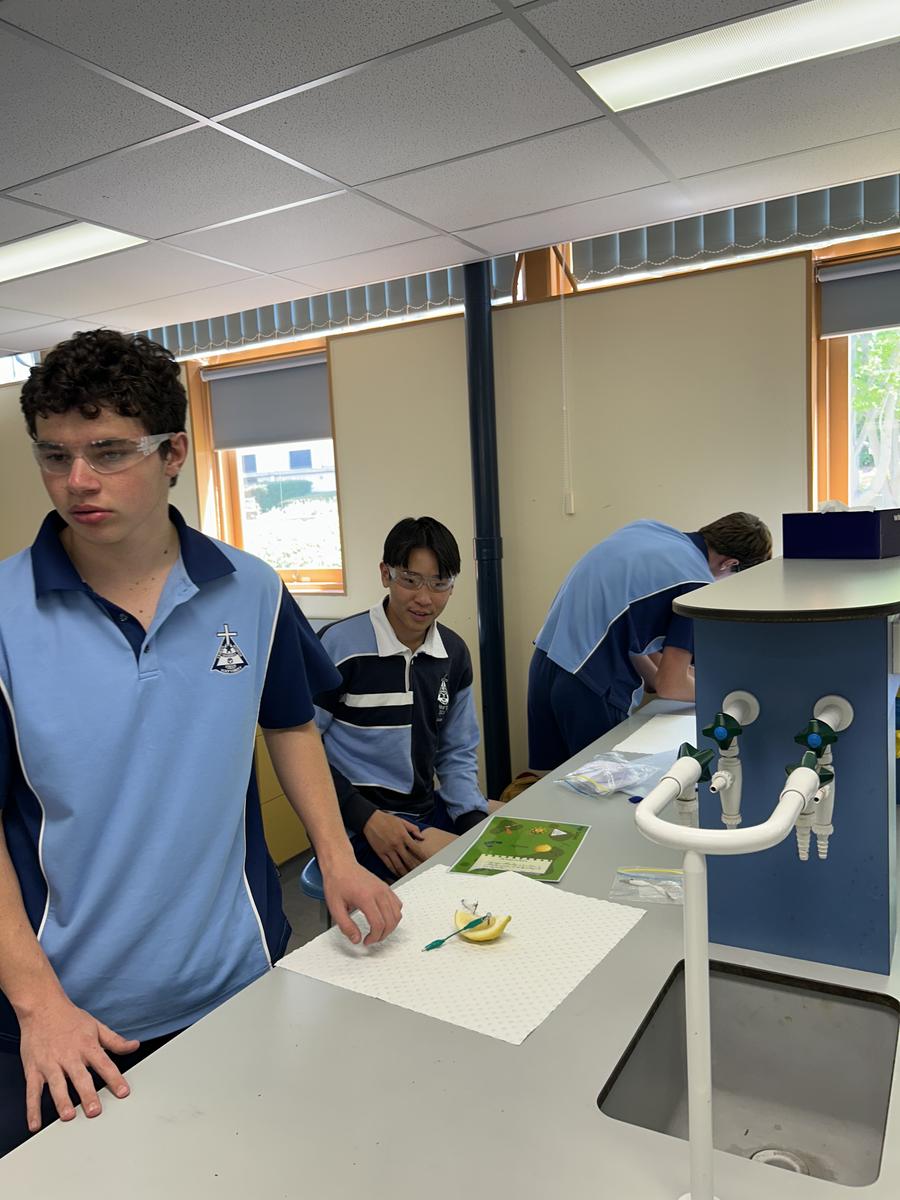
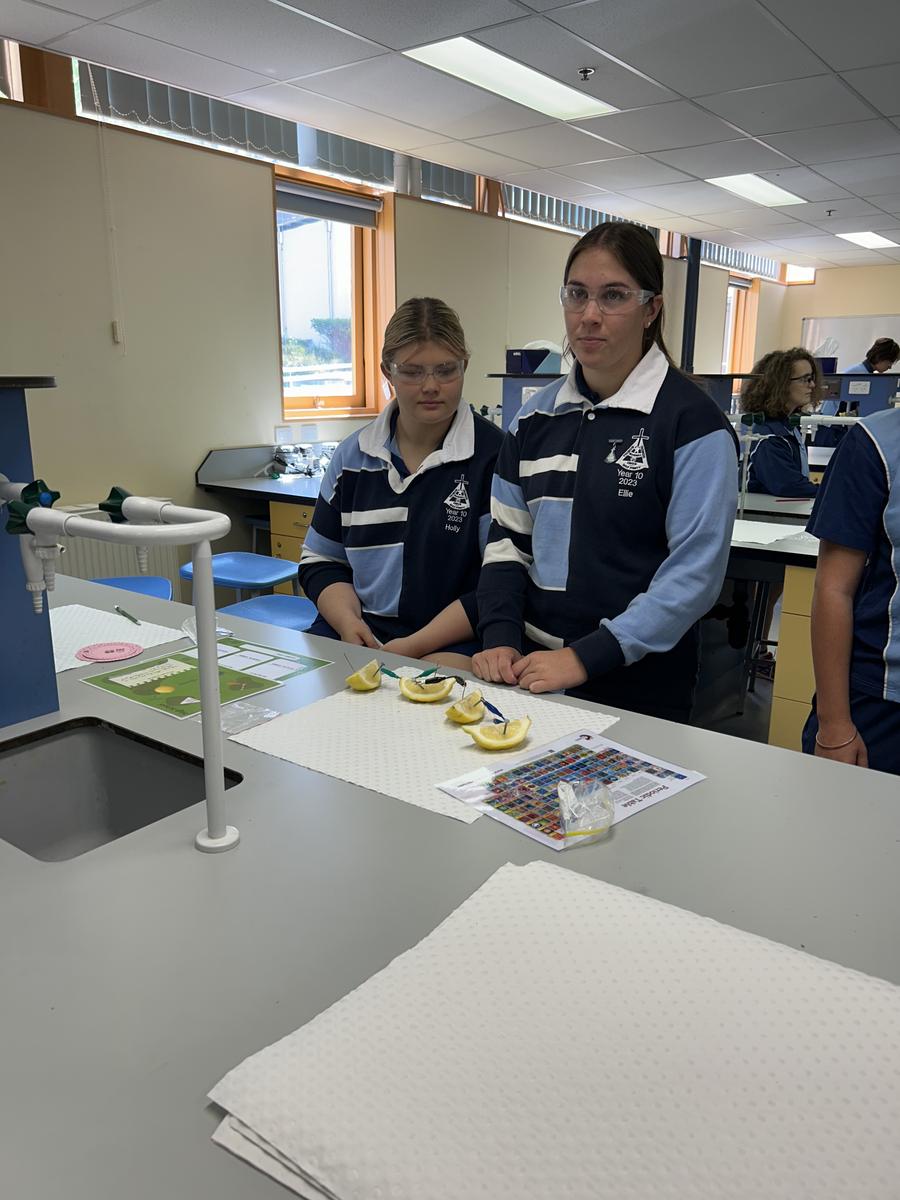
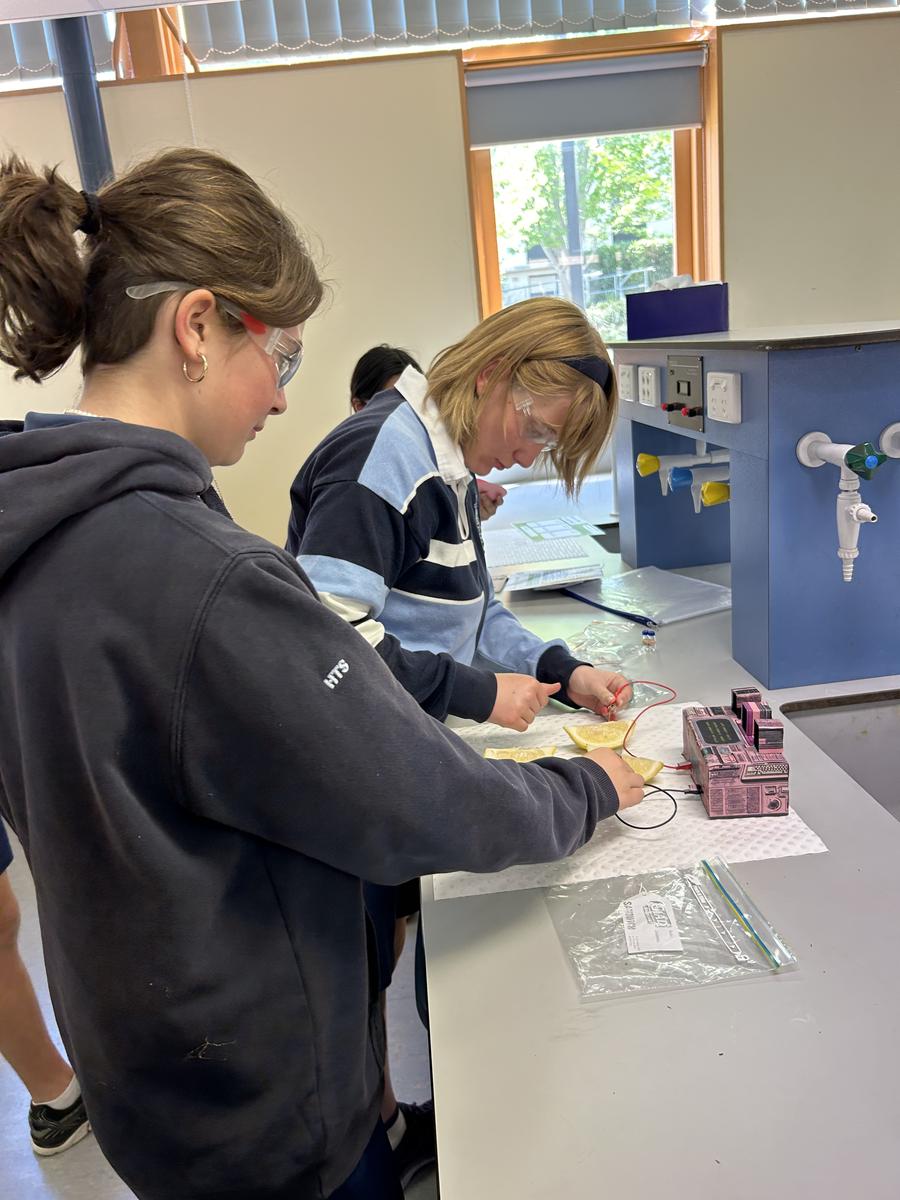
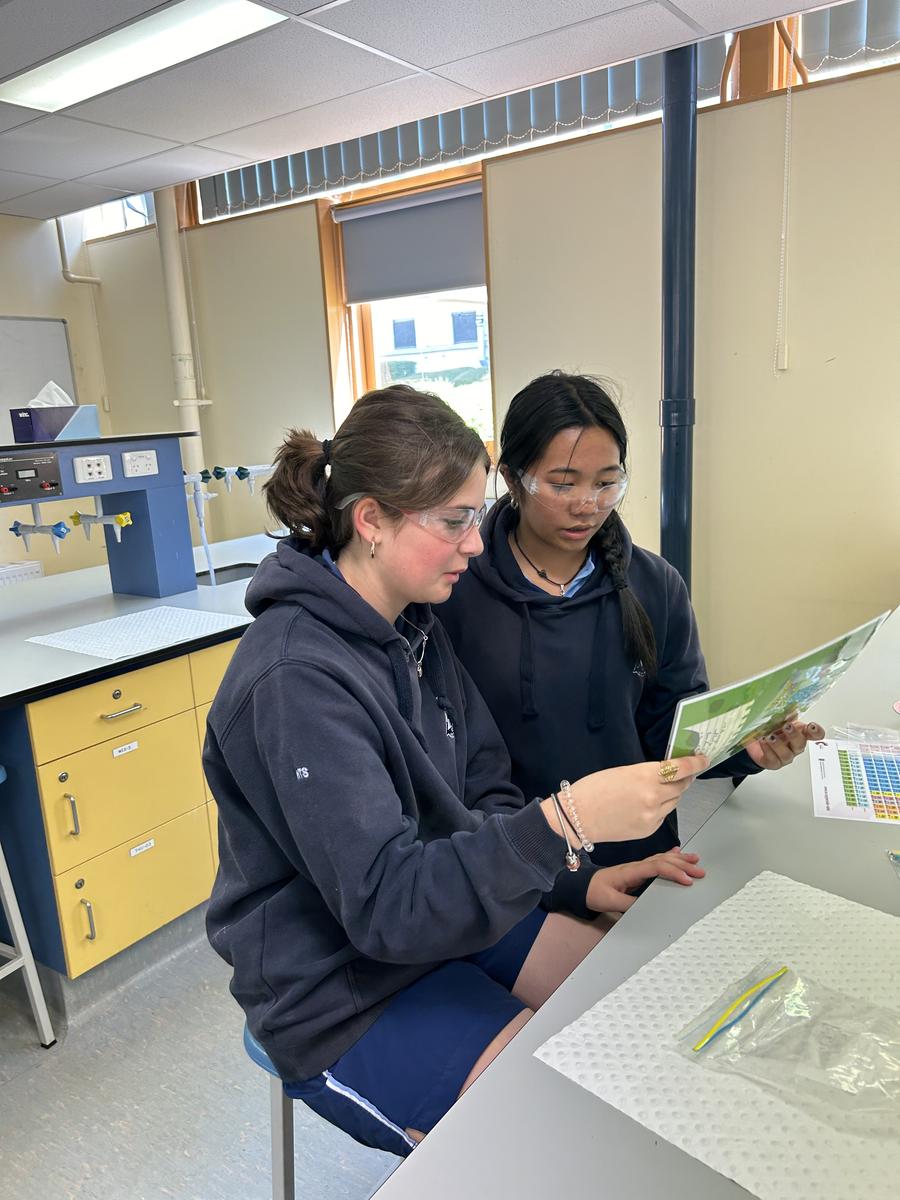
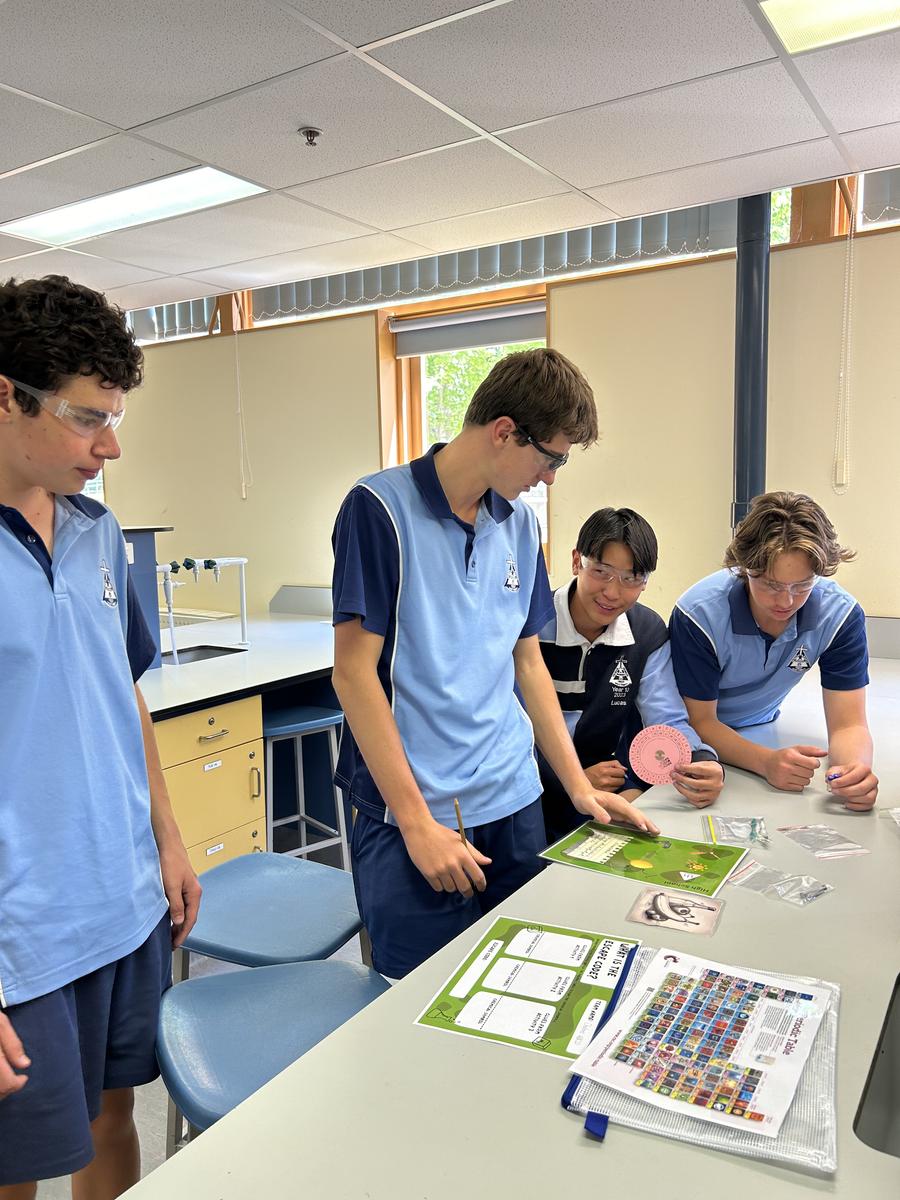
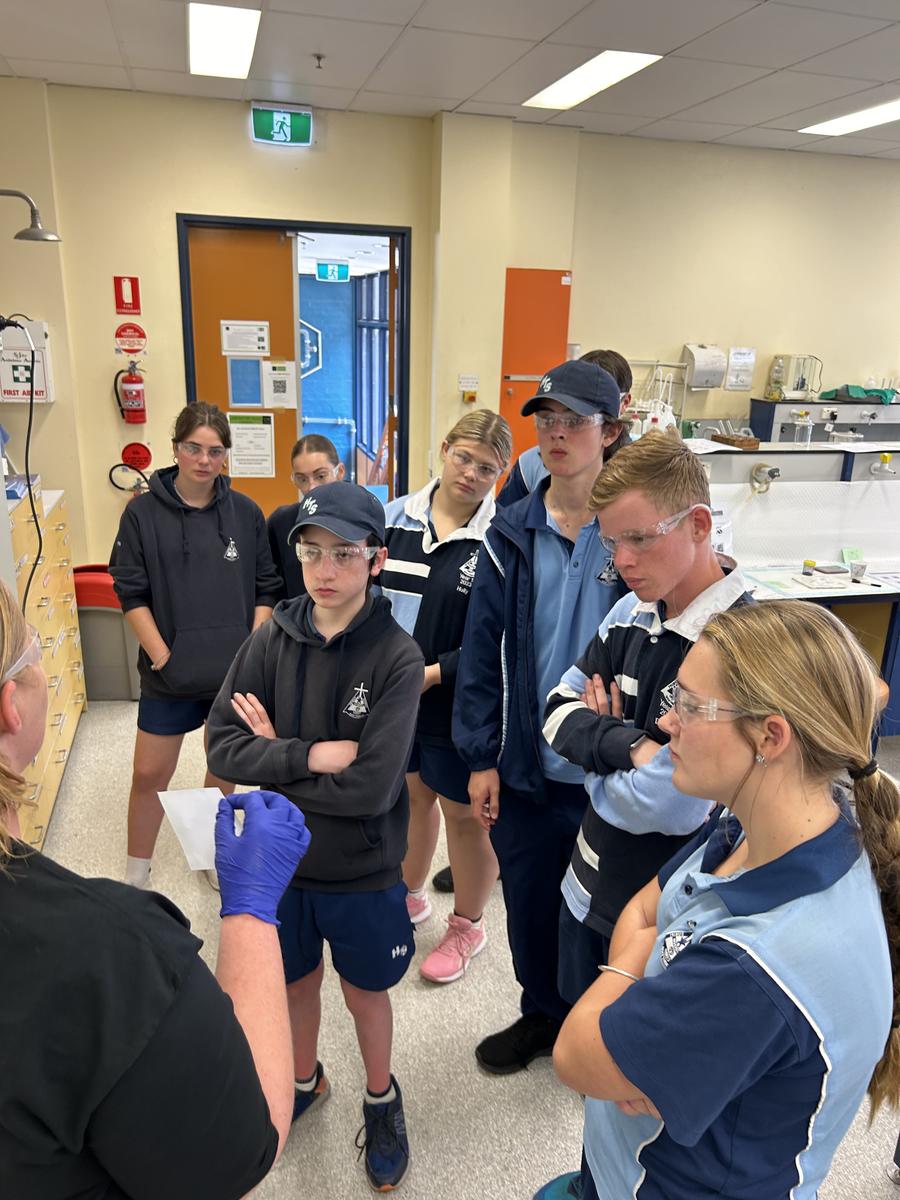
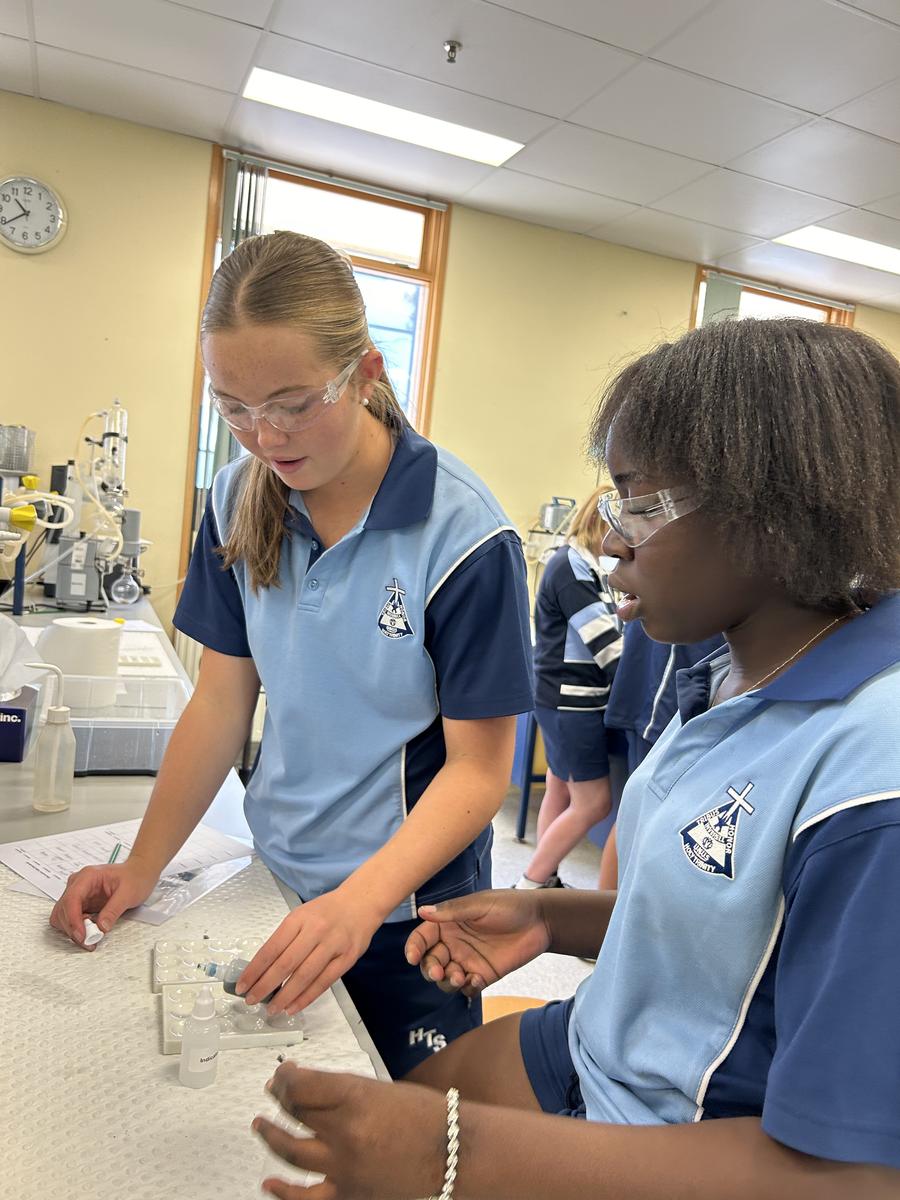
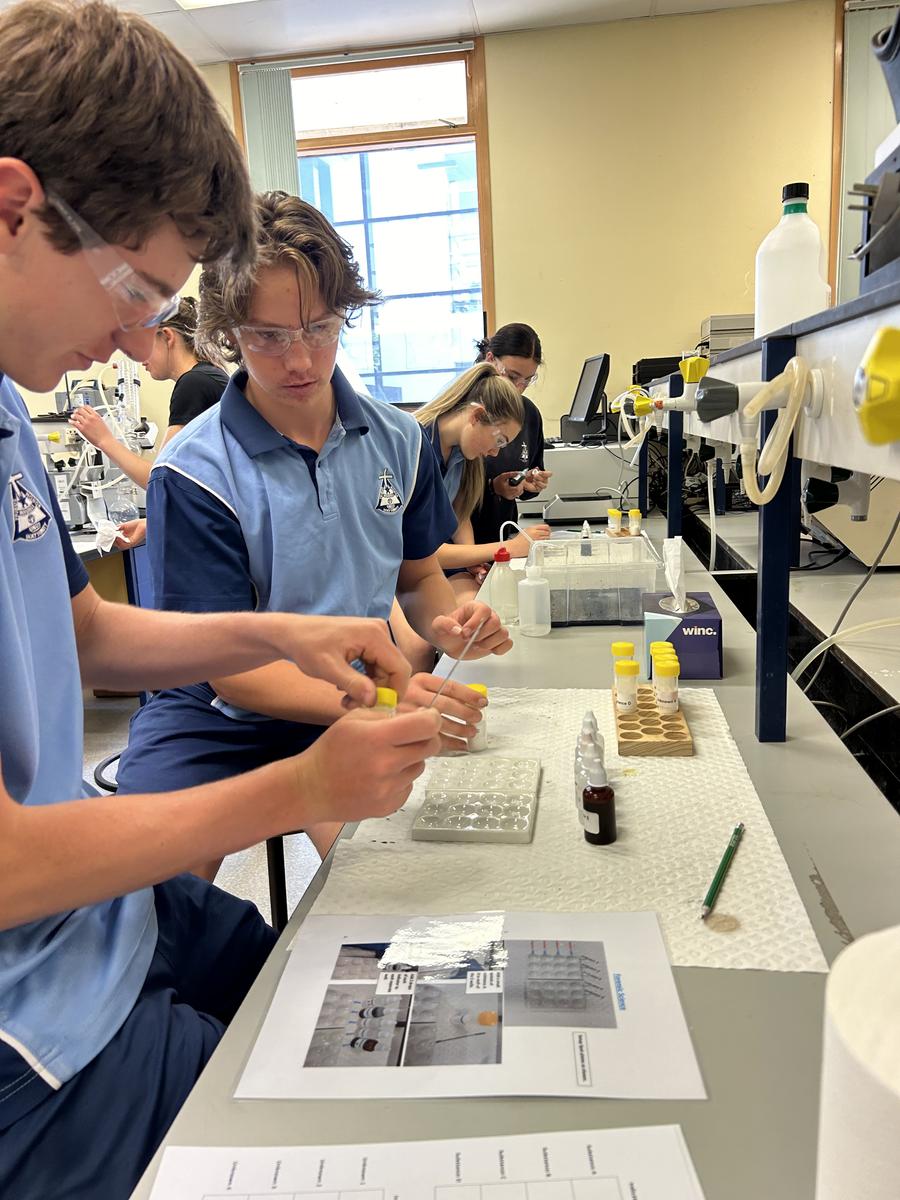
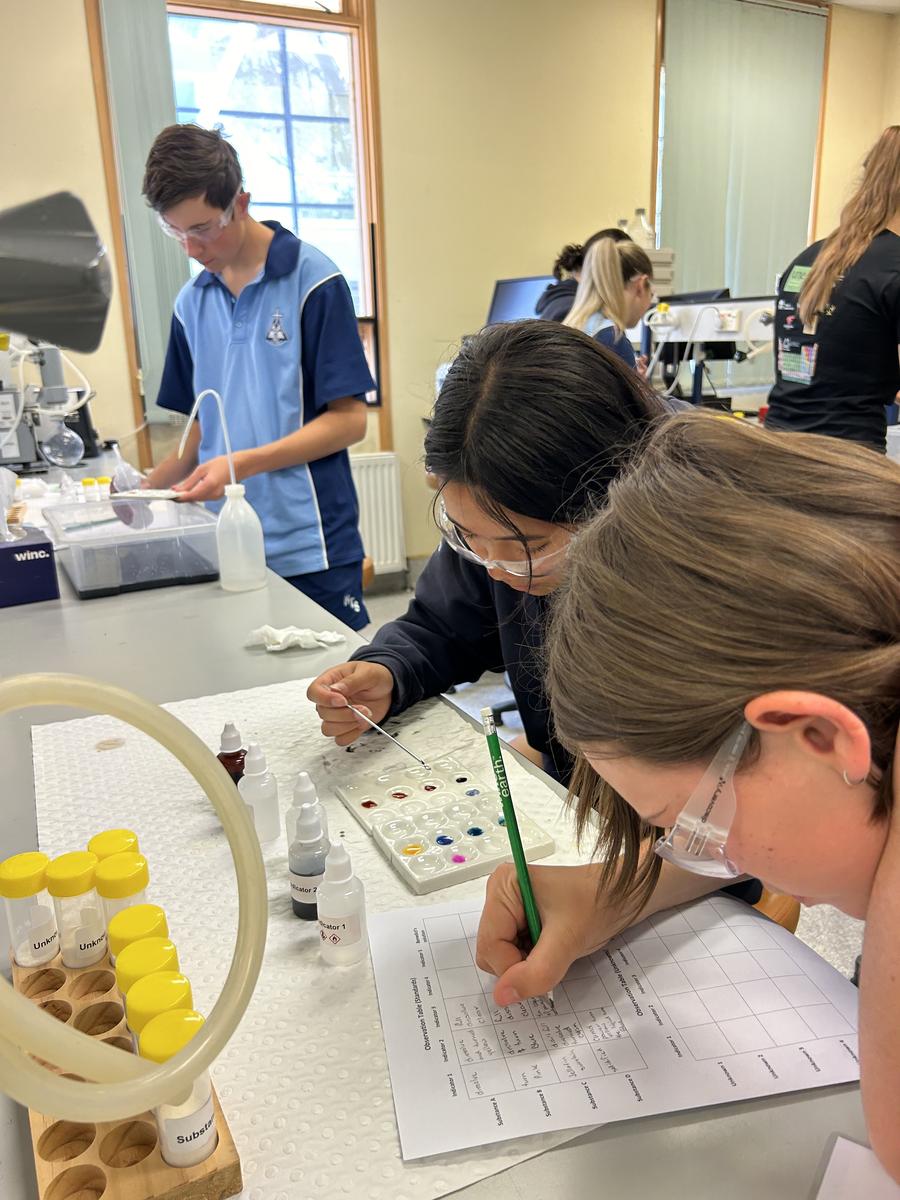
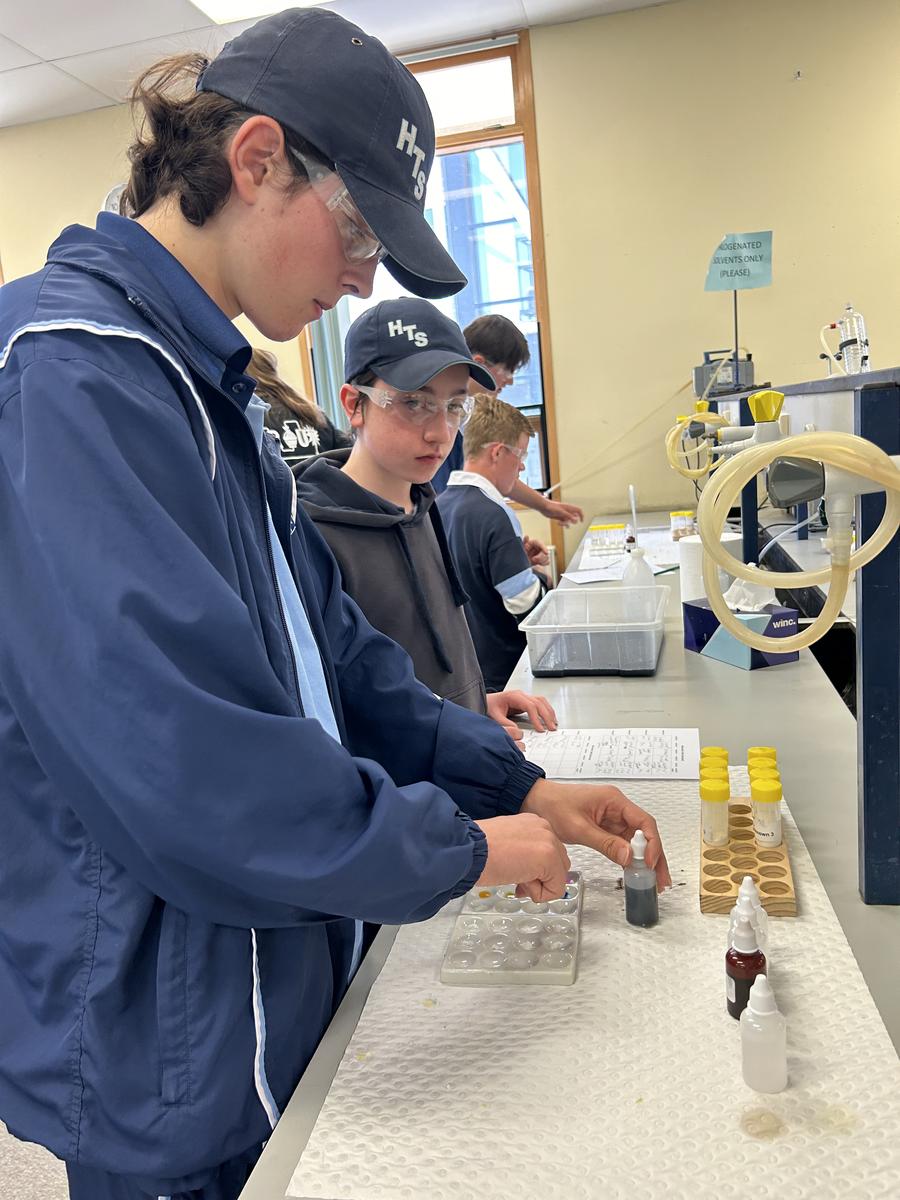
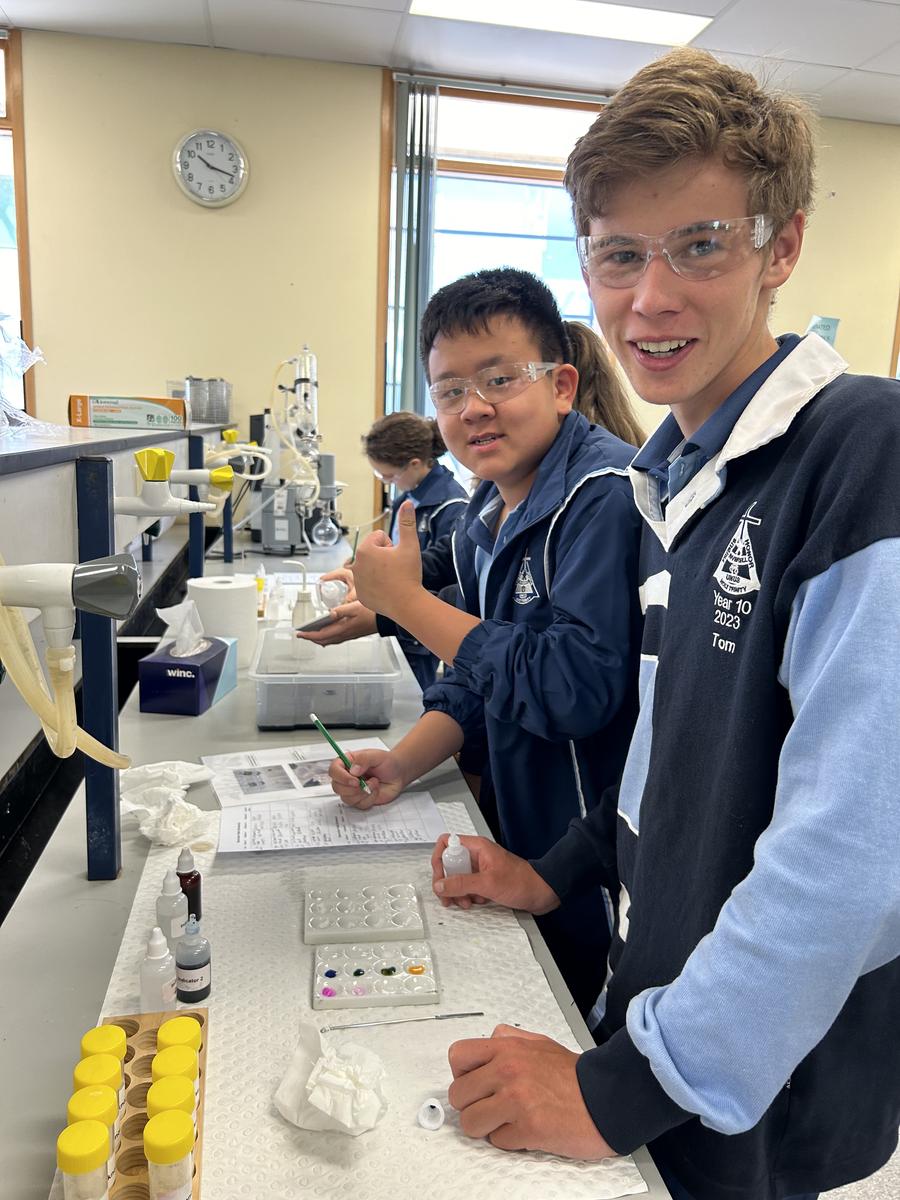
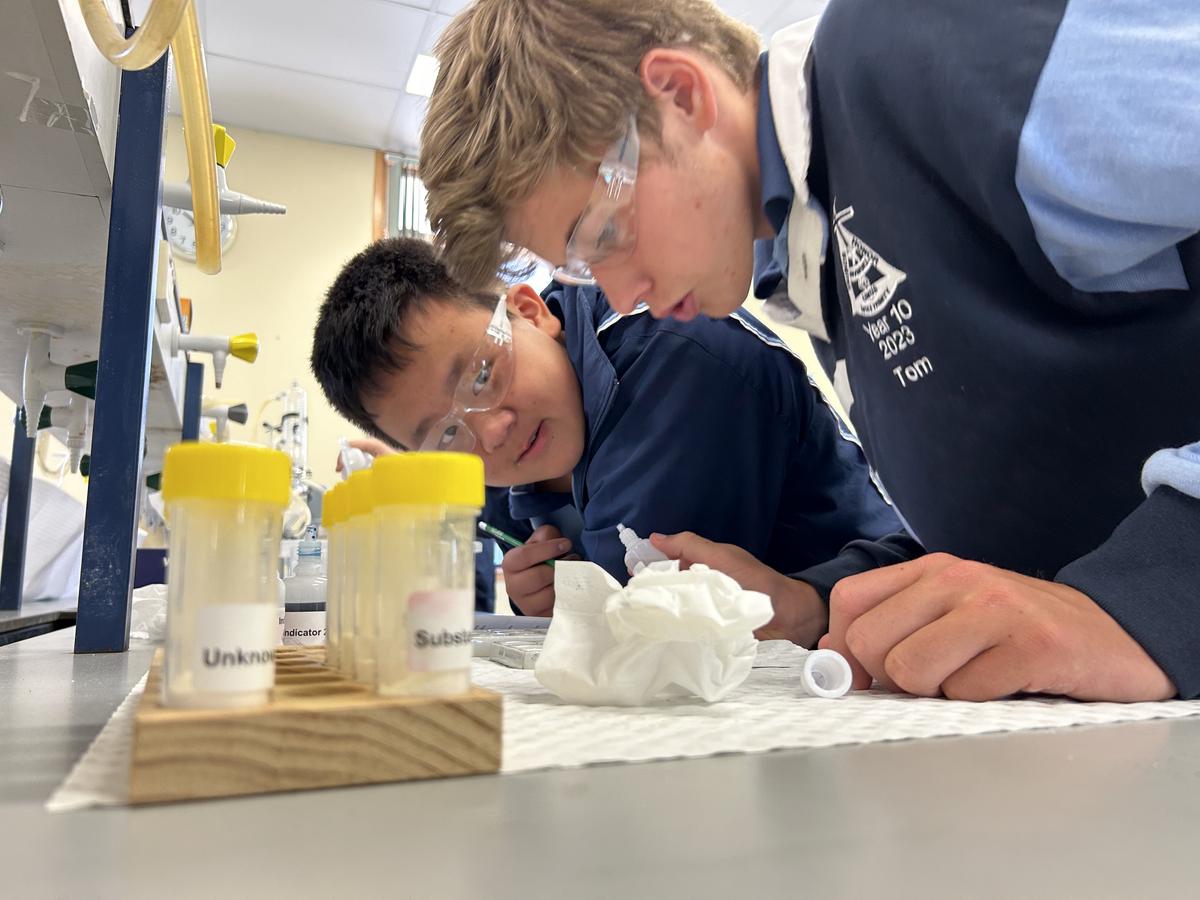
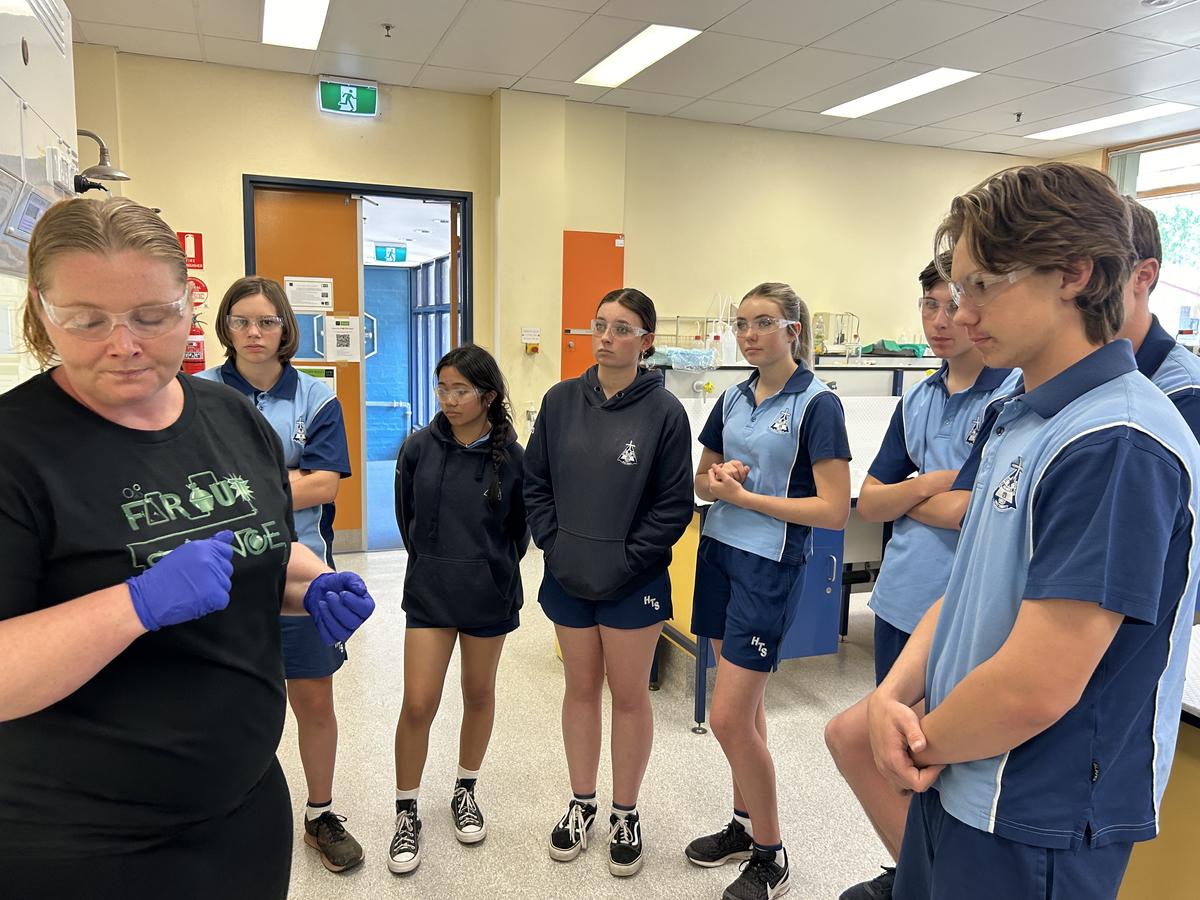
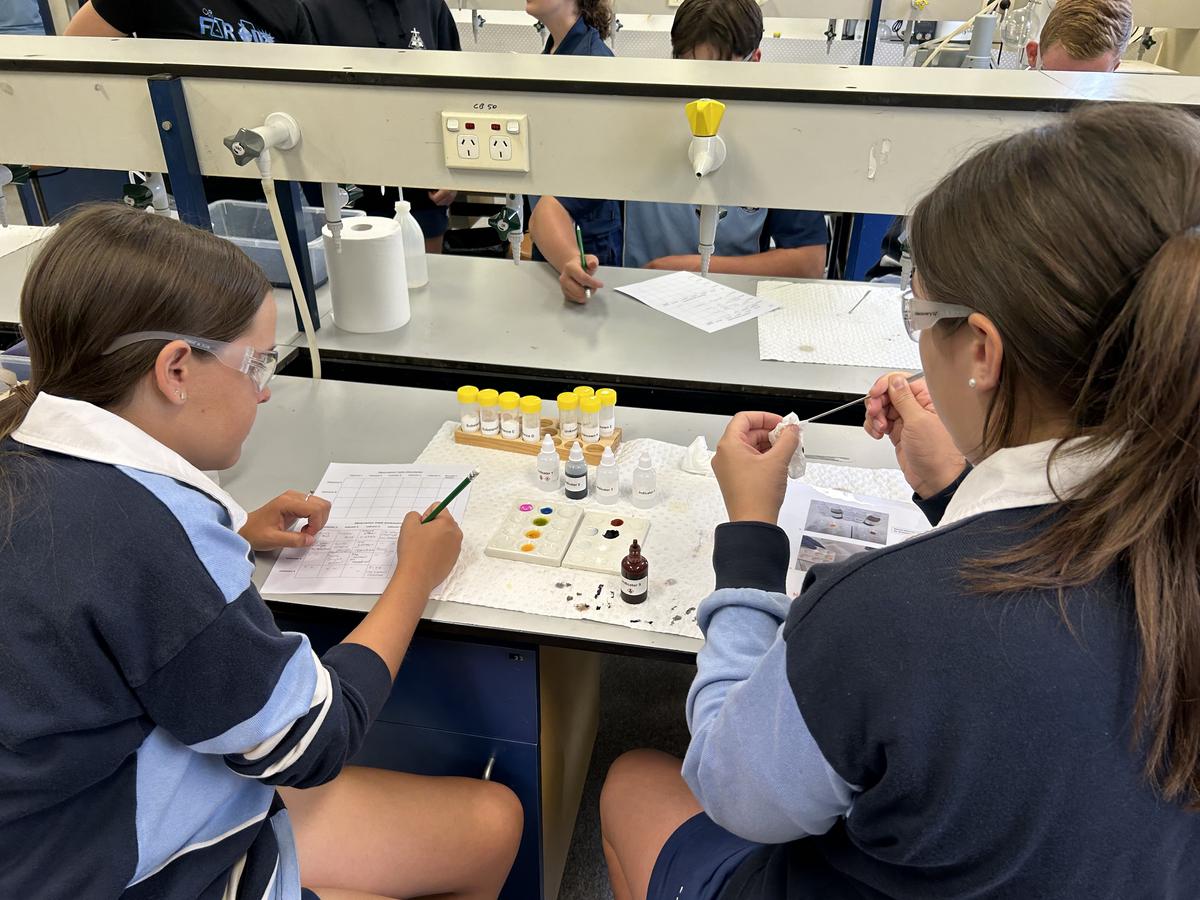
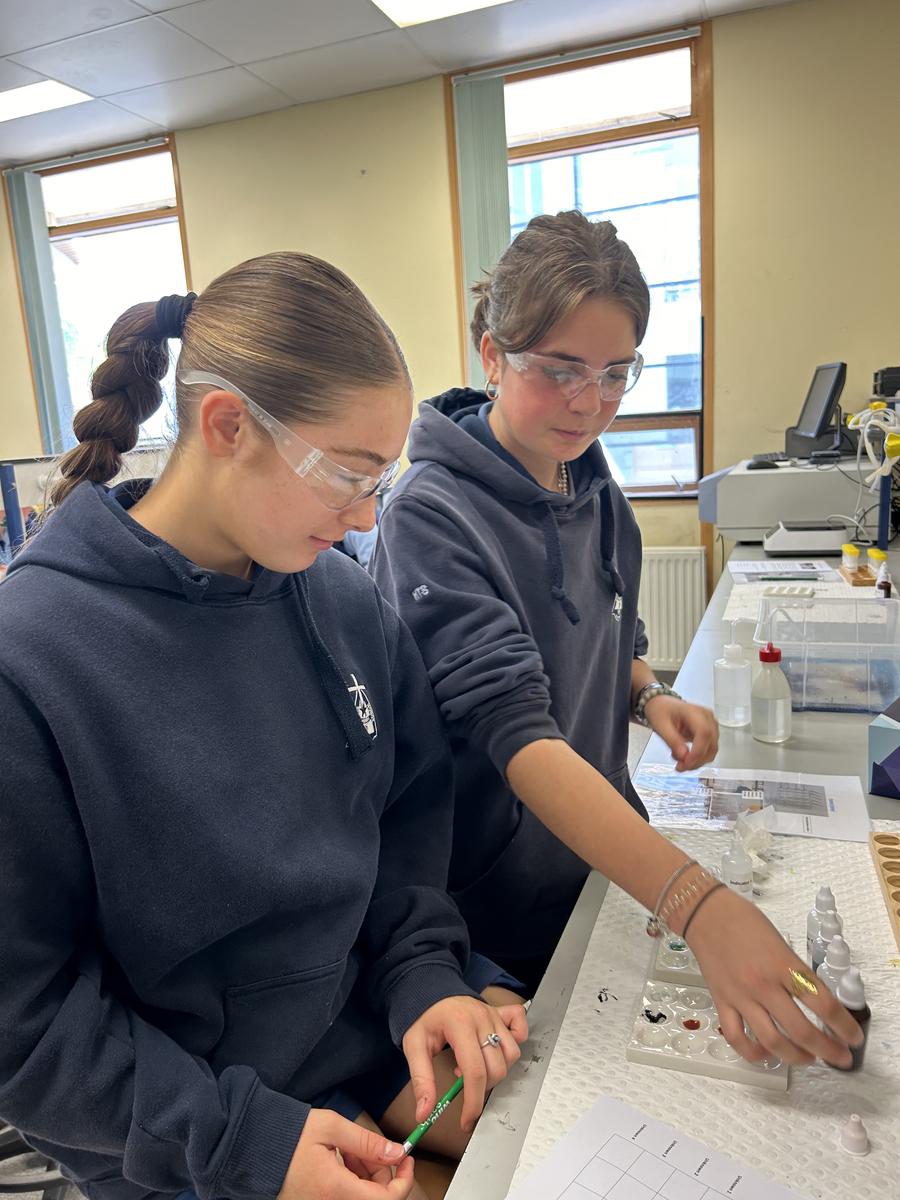
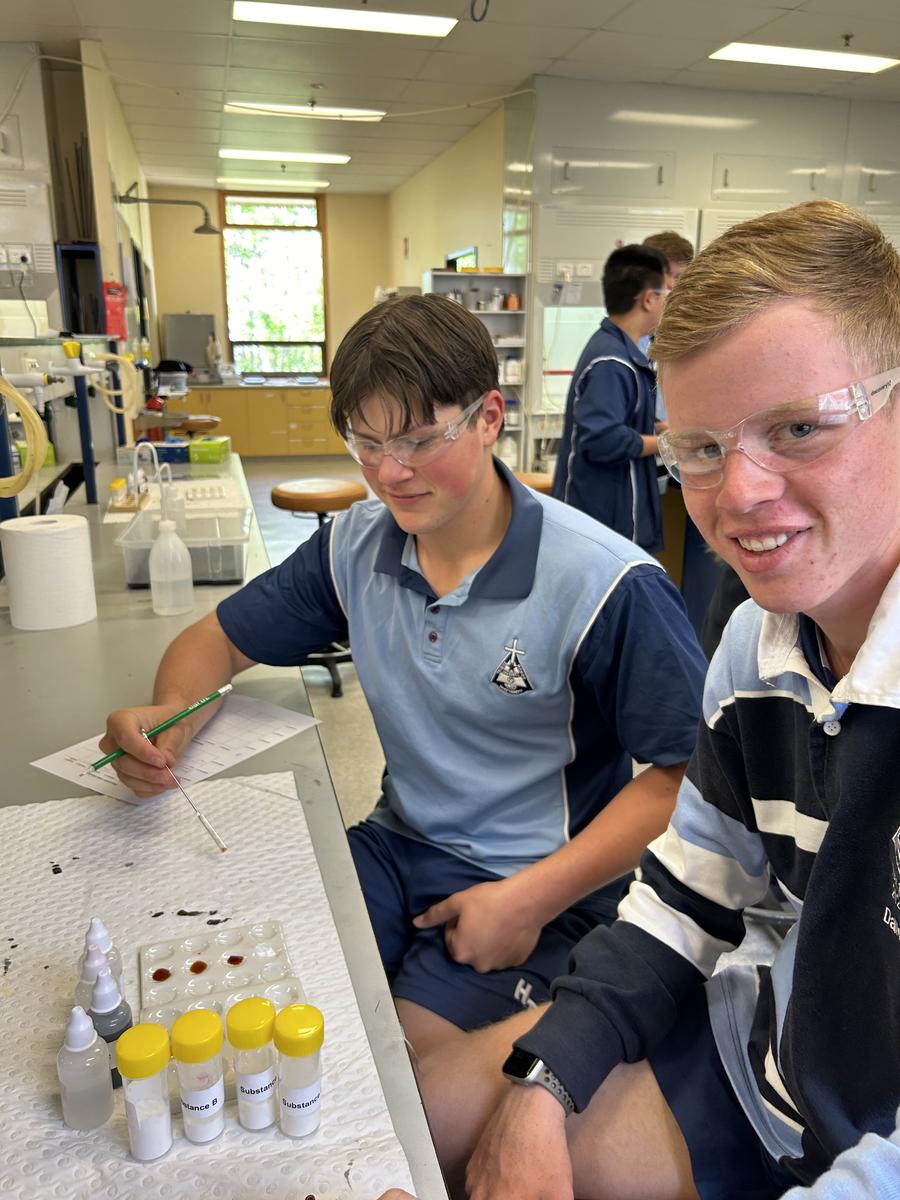
























During week 1, three Year 8 and 9 Aboriginal and Torres Strait Islander students from HTS participated in the Warraymayalaya Maal Dhuwi Retreat, which focused on "Aboriginal Spirituality and Identity." The name of the retreat, "Warraymayalaya," means "Stand together," and "Maal Dhuwi" translates to "One Spirit."
During the retreat, these students took part in cultural and team-building activities designed to foster courage, resilience, and the opportunity to make new friends while having fun. The primary focus was on learning about the significance of carrying one's Spirit and Identity together, emphasizing the importance of Aboriginal spirituality and identity.
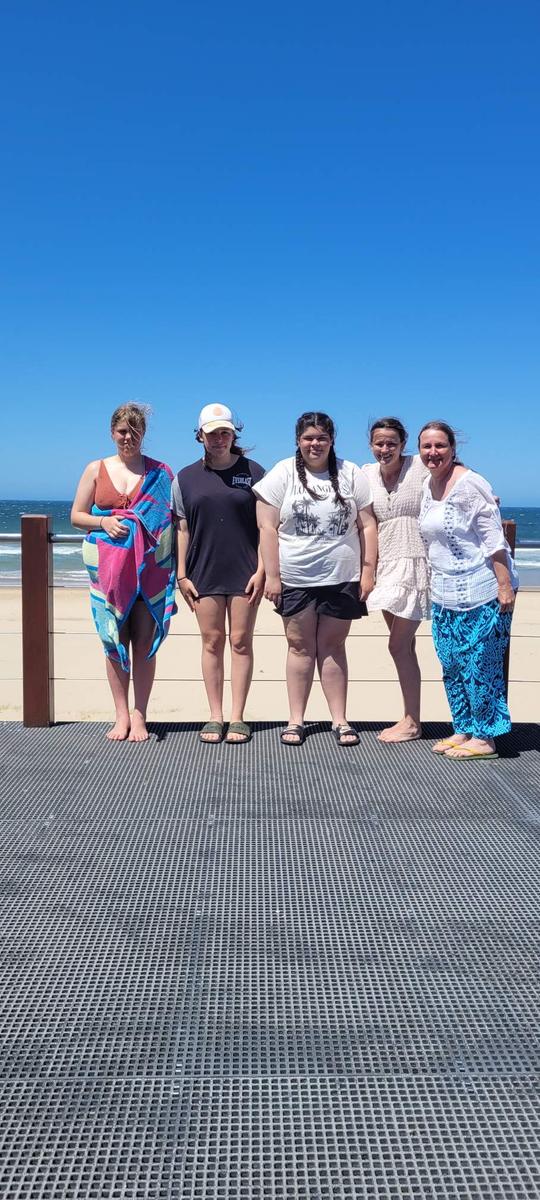

Students in Years 7 - 10 commenced their exams yesterday. If a student is absent on a scheduled exam day, they will complete the missed exams at the first available opportunity. If known in advance, exams may be completed before the absence.
It is also important to note that exams are only one of the methods of assessment. The semester report will include a variety of formative and summative assessment tasks completed over the course of the semester.
To optimise performance, students need to be well-rested. They also need to ensure that they have the necessary equipment, for example, spare pens, a calculator and geometrical instruments for Mathematics and Science. Please advise staff of any issues regarding the completion of exams.
Exam timetables have been distributed to students and are also visible on Compass for all year groups and parents.
For many students, a block of examinations can be daunting. Some students have no idea where to start and what they should work on. The first thing to do if you have examinations approaching in the next few months is to find out what topics will be tested. Even a simple question to teachers can get you started, such as ‘Are we being tested on the whole year’s work or just this semester?’. Once you know what topics will be covered, organize all of your learning materials and make sure nothing is missing, and you have everything you need to review those topics. The next step is to make study notes on these topics if you haven’t been doing this throughout the year (hopefully you have!).
Next, it is time to start learning the notes (testing yourself on them over and over) and doing practice questions to make sure you can apply your knowledge to different types of questions.
If you have a number of weeks prior to the examinations, it is a good idea to make a plan in your diary or phone or on a whiteboard of what subjects you will study and when. Try and allocate each subject once or twice each week, depending on the number of examinations you have.
With exam time approaching, it is time to seriously think about making study notes – especially if you haven’t been doing them regularly throughout the year. Find out what topics will be tested, make a quick mind map of each topic so you can see an overview of what you need to learn, and then start making point-form notes about what you need to learn and remember for the exam. You want to make your study notes as soon as possible so you have ample time to learn them and to do lots of practice questions.
Top 5 Tips to Improve Your Notes:
In an ideal world, it would be great if all students paid attention, focused and participated in all classes, completed all homework and assessments thoroughly, asked for help throughout the year on anything they didn’t understand, made regular summaries of the work covered in class (preferably at the end of each topic or section) and did their best to learn as they go throughout the year.
But in reality, this doesn’t always happen for every student and every subject.
So what can you do if you have left your study for tests and exams to the last minute?
5 TIPS FOR LAST-MINUTE STUDY
The key is to get started. No more procrastination, no more excuses.
Start today!
What do you do in the few days before an examination?
At least a few days before the exam, make sure you do the following:
The night before the test or exam:
The morning of the test or exam:
Remember to accept the invitation to sign up for Google Classroom Guardian Summaries. Please contact Miss Bailey if you have any questions or problems.


Miss Kim Bailey
Miss Claudia Cush
Mrs Angela East
Mr Peter Ehsman
Mr Anthony Gaias
Miss Alana Goldman
Mrs Mary-Jane Guest
Mrs Lee Grady
Mrs Malynda Hiscock
Mr David Koch
Mrs Stephanie Marshall
smarshall3@arm.catholic.edu.au
Mrs Veronica McCormick
Mrs Christine McLachlan
cmclachlan@arm.catholic.edu.au
Mr Matthew Pye
Mrs Jane Taylor
Mrs Katherine Townsend
Mr Blake Uebergang
Mrs Carrie Watchirs